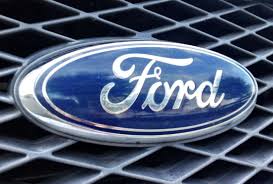
The United States based auto giant Ford Motor said that it has decided to bring an end to its planned partnership with China's Zotye Automobile for launching and manufacturing of electric vehicle through a joint venture.
Since Ford had signed the joint venture agreement with the Chinese company in 2017 and 2018, there have been major changes in the electric vehicle industry of China as well as in the policies of the Chinese government towards electric vehicles and joint ventures of Chinese firms with foreign companies which prompted the US auto major to take the decision to terminate the agreement. Ford however did not make any specific mention of the changes that prompted its decision.
The US company had however said last week that manufacturing of all-electric Mustang Mach-E vehicles would soon be commenced in China with its Chinese joint venture partner Chongqing Changan Automobile Co.
Ford will devise and follow a more "flexible business model in China" which would help the auto company to make maximum utilization of the existing resources and operations of the company in the Chinese market as well as in other markets while also building up associated business centres, Ford said in a statement on Thursday.
No comments on the latest move by Ford to terminate the joint venture agreement were available in the media from the Chinese company Zotye.
The two companies Ford and Zotye had announced their decision to start a joint venture for making electric vehicles in China during a visit of the former United States president Donald Trump to China in 2017. Back then the two companies had pledged a combined investment of $756 million for the setting up a 50-50 joint venture in China for development and manufacture of small electric passenger vehicles.
The two companies again announced a year later that they had signed a memorandum of understanding aimed to set up another joint venture that would be used for development and manufacturing of electric vehicles for ride hailing companies in the Chinese market and elsewhere.
In China, the largest auto market as well as the largest electric car market of the world, a host of companies ranging from local Chinese companies and startups such as Nio Inc to the largest global auto players such as the United States based electric car making leader of the world Tesla have been expanding their manufacturing capacities in the country. This strategy has been prompted by the significant policy support and push of the Chinese government for greener vehicles as a way for the country to reduce its air pollution which has become a chronic problem in all of the larger cities of the country.
According to the predictions and estimates of the Chinese State Council published in November last year, there will be an expected growth of 20 per cent in the sale of new electric, plug-in hybrid and hydrogen-powered vehicles in the country by 2025 compared to the current growth rate of just 5 per cent.
(Source:www.economictimes.com)
Since Ford had signed the joint venture agreement with the Chinese company in 2017 and 2018, there have been major changes in the electric vehicle industry of China as well as in the policies of the Chinese government towards electric vehicles and joint ventures of Chinese firms with foreign companies which prompted the US auto major to take the decision to terminate the agreement. Ford however did not make any specific mention of the changes that prompted its decision.
The US company had however said last week that manufacturing of all-electric Mustang Mach-E vehicles would soon be commenced in China with its Chinese joint venture partner Chongqing Changan Automobile Co.
Ford will devise and follow a more "flexible business model in China" which would help the auto company to make maximum utilization of the existing resources and operations of the company in the Chinese market as well as in other markets while also building up associated business centres, Ford said in a statement on Thursday.
No comments on the latest move by Ford to terminate the joint venture agreement were available in the media from the Chinese company Zotye.
The two companies Ford and Zotye had announced their decision to start a joint venture for making electric vehicles in China during a visit of the former United States president Donald Trump to China in 2017. Back then the two companies had pledged a combined investment of $756 million for the setting up a 50-50 joint venture in China for development and manufacture of small electric passenger vehicles.
The two companies again announced a year later that they had signed a memorandum of understanding aimed to set up another joint venture that would be used for development and manufacturing of electric vehicles for ride hailing companies in the Chinese market and elsewhere.
In China, the largest auto market as well as the largest electric car market of the world, a host of companies ranging from local Chinese companies and startups such as Nio Inc to the largest global auto players such as the United States based electric car making leader of the world Tesla have been expanding their manufacturing capacities in the country. This strategy has been prompted by the significant policy support and push of the Chinese government for greener vehicles as a way for the country to reduce its air pollution which has become a chronic problem in all of the larger cities of the country.
According to the predictions and estimates of the Chinese State Council published in November last year, there will be an expected growth of 20 per cent in the sale of new electric, plug-in hybrid and hydrogen-powered vehicles in the country by 2025 compared to the current growth rate of just 5 per cent.
(Source:www.economictimes.com)














